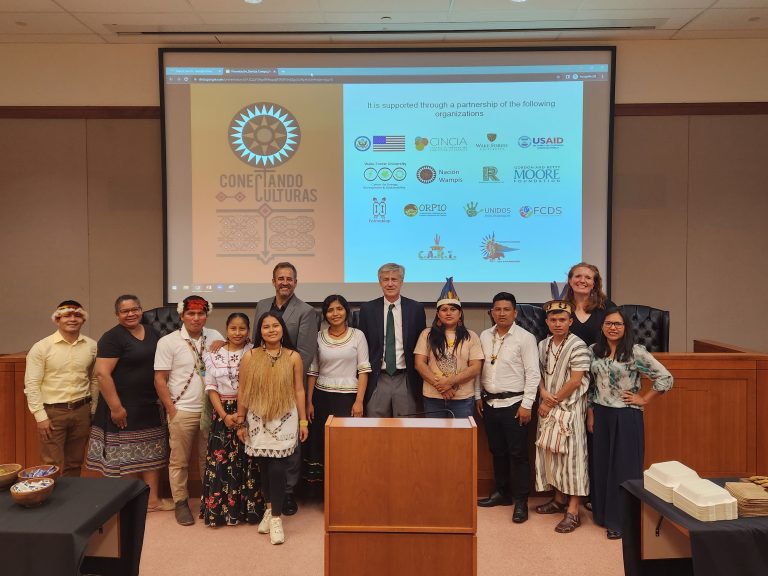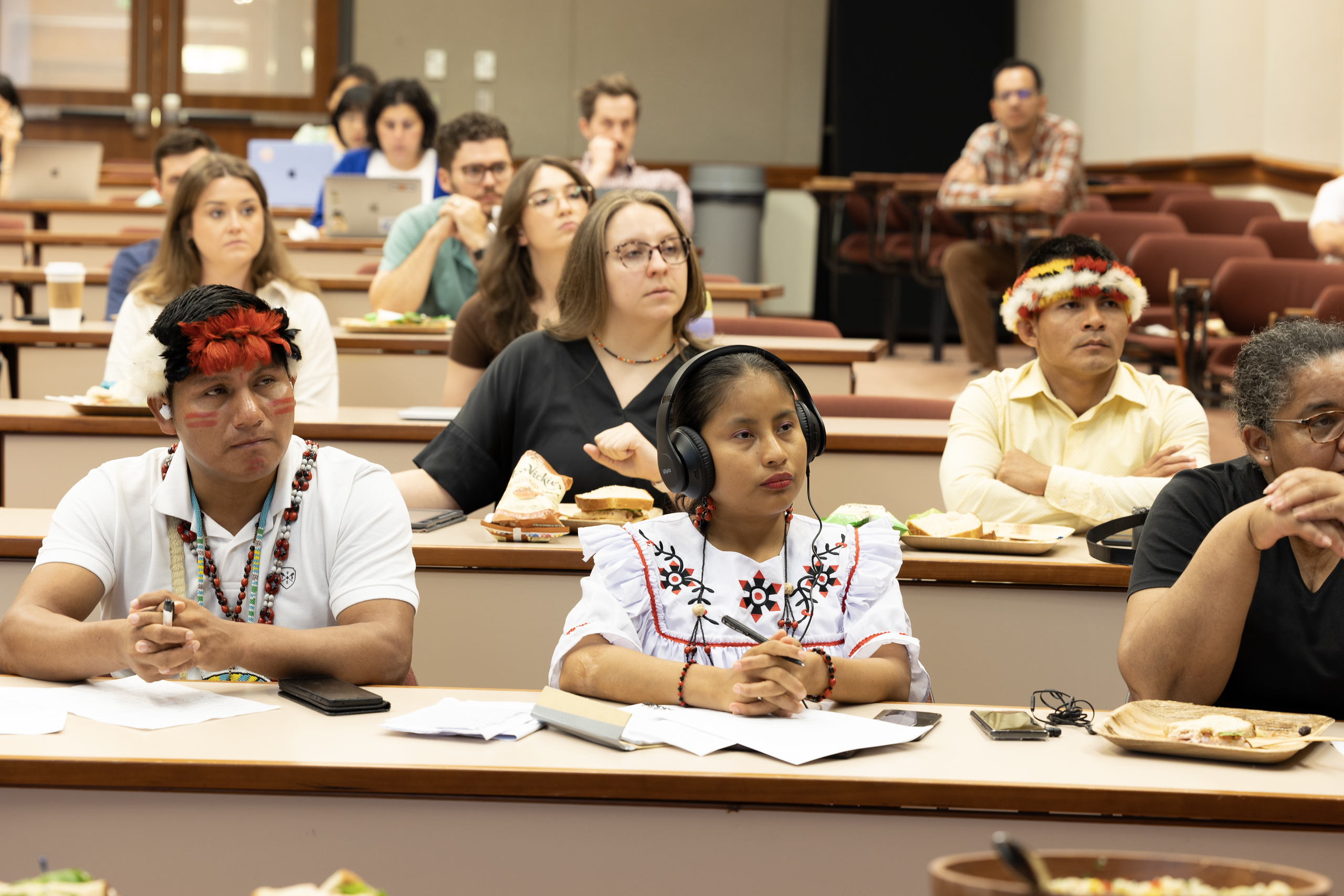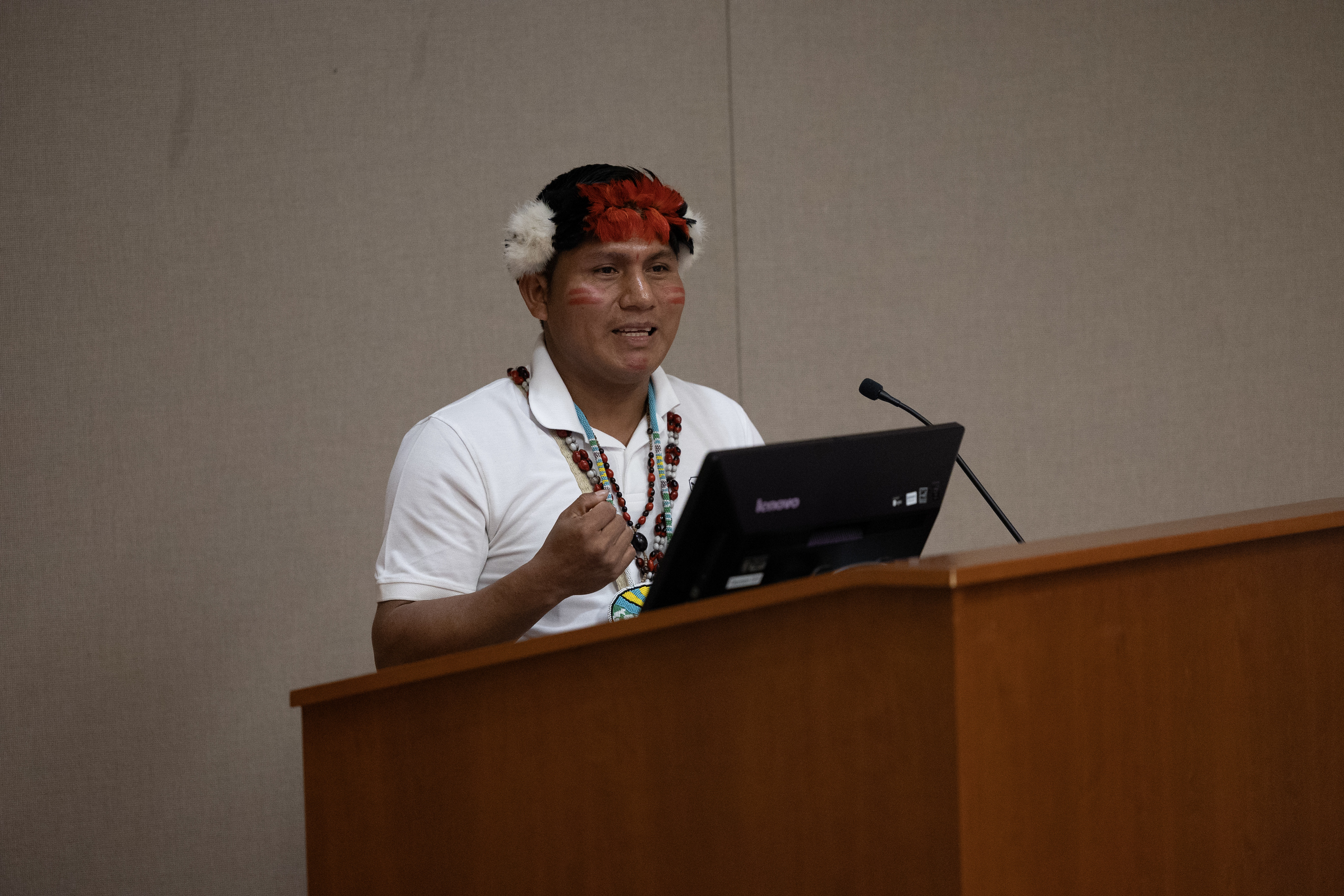Wake Forest Law Welcomes Young Indigenous Leaders from Peruvian Amazon

The week of September 5, Wake Forest’s Andrew Sabin Family Center for Environment and Sustainability (formerly known as the Center for Energy, Environment, and Sustainability (CEES)) hosted a delegation of young Indigenous leaders from the Peruvian Amazon. The multi-day event, which was a collaboration between Wake Forest’s Center for Amazonian Scientific Innovation (CINCIA), the US Department of State (via the embassy in Peru), and a number of funders, included seven young Indigenous leaders from six different regions in Peru. Also participating were Edgar Flores, a representative from the US Embassy in Peru (and the first Indigenous staff member at that embassy), Marta Torres and Carmen Acho from CINCIA, and Luis Fernandez, Executive Director of CINCIA and Wake Forest University research professor of biology.
A portion of the program took place at Wake Forest University from September 5-8. The young leaders then traveled to Washington, DC from September 9-12. The goal of the visit to Wake Forest was to strengthen the capacities of these young Amazonian leaders in Peru to exercise their rights on issues of importance to them, including tribal education, gender equality, community surveillance systems, sustainable economic activities, and the sustainable use and conservation of natural resources for the benefit of their communities and the environment. The young leaders are reporting their learnings back to their communities at ExpoAmazónica, a large conference of Indigenous groups in Peru, this fall.
Wake Forest Law welcomed the Indigenous leaders on September 6 for a lunch workshop with Professor John Knox and Professor Scott Schang. Two of the young leaders also spoke at the event. Their remarks were interpreted from Spanish to English by faculty and alumni of Wake Forest’s Interpreting and Translation Studies Graduate Program, who also interpreted the presentations by Professor Knox and Professor Schang into Spanish.
Professor Knox spoke on human rights law and Indigenous land rights. He presented on four specific rights that were relevant to the Indigenous leaders: the right to recognition—to have their ancestral territorial limits demarcated and protected; the right to informed prior consent—to be consulted and to give or withhold consent for actions that adversely affect them; the right to self-determination—to be able to decide for themselves their own path for land development; and the right to remedies—if their lands are used, they have the right to the benefits of that usage or if the land has been taken away, they have the right to restitution. He gave a brief overview of the courses of action the Indigenous leaders can take when these rights are violated, including filing complaints with various bodies of experts, such as the United Nations. “While there wouldn’t automatically be remedies to the violations, filing complaints with an international body can raise visibility and get a binding decision to enforce and protect your rights,” he told the leaders.

Professor Schang, director of the Environmental Law and Policy Clinic, then spoke to the audience about some of the ways that law school clinics help people with securing their land rights, as well as how the Indigenous leaders could leverage companies to intervene on their behalf. “Many multinational companies have said they will abide by the system of international human rights,” said Professor Schang. “If your country’s government isn’t abiding by those rights, you are within your rights to submit complaints through the various channels available.”
After the professors spoke, two of the young Indigenous leaders took the podium. Nayap Santiago Velásquez of the Wampis Nation discussed how 1.37 million hectares (larger than the size of Connecticut) of the Amazonian forest is taken care of by the Wampis Nation, and that protecting their ancestral homeland is integral to protecting the Amazon. Danitza Cenepo Tapullima spoke about some of the ways in which she and her Indigenous sisters have helped to combat violence against women in their region. Both speeches were powerful testaments to the key role that youth leaders play in the fight to protect their land and their people.

The session was a valuable reminder of the many benefits of radical collaboration across Wake Forest University. Thanks to the partnership between the Sabin Center, CINCIA, Wake Forest Law, and other campus departments, the program was a success and demonstrated how we can and must collaborate across disciplines, generations, and geographies to find solutions to major global issues.
Categories: Our Stories